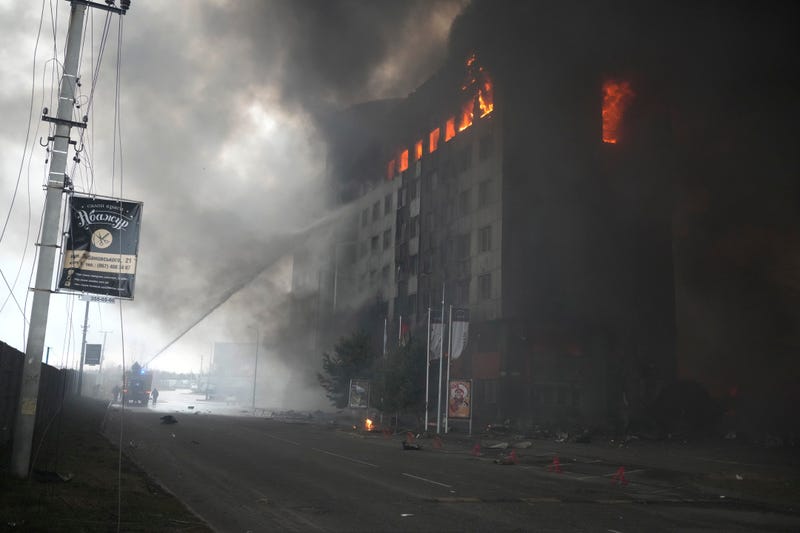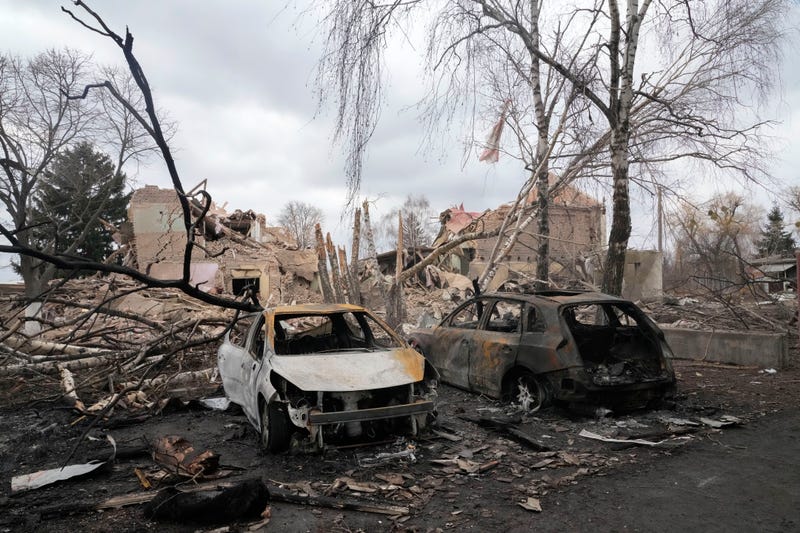
NEW YORK (1010 WINS/AP) -- After causing worldwide concern, a fire at Europe’s largest nuclear plant that was ignited by a Russian attack on Ukraine was extinguished Friday and no radiation was released. It came as Russian forces pressed their campaign to cripple Ukraine, launching hundreds of missiles and artillery strikes on cities and making significant gains in the south. With the invasion in its second week, another round of talks between Russia and Ukraine Thursday yielded a tentative agreement to set up safe corridors to evacuate citizens and deliver humanitarian aid to the country, from which more than 1 million people have fled since last week.
Friday, March 4, 2022
4:25 p.m. - Vice President Kamala Harris will travel to Poland and Romania next week: WH
Vice President Kamala Harris will travel to Warsaw, Poland and Bucharest, Romania from March 9 to March 11 to "demonstrate the strength and unity of the NATO Alliance and U.S. support for NATO’s eastern flank allies in the face of Russian aggression," the White House said Friday.
"During her meetings with the leaders of Poland and Romania, the Vice President will advance our close coordination in response to Russia’s unprovoked and unjustified invasion of Ukraine," their statement said. "They will discuss our continuing support for the people of Ukraine through security, economic, and humanitarian assistance and our determination to impose severe economic consequences on Russia and those complicit in Russia’s invasion."
"The Vice President’s meetings will also focus on how the United States can further support Ukraine’s neighbors as they welcome and care for refugees fleeing violence," they continued. "More details on the Vice President’s engagements will be forthcoming in the coming days."
3:30 p.m. - White House reportedly considering ban on Russian oil imports to US
The Biden administration is considering a ban on U.S. imports of Russian crude oil in a move to punish the Russian government, according to a report.
According to Bloomberg, the White House is discussing with the U.S. oil and gas industry on how the ban could affect consumers and the global supply chain.
A ban has also gained growing bipartisan support on Capitol Hill.
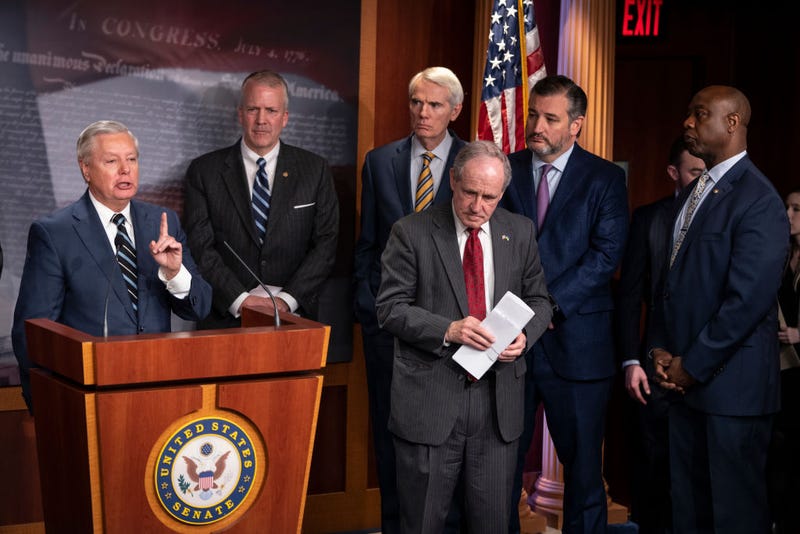
2:50 p.m. - Biden speaks with Polish President on Russia-Ukraine crisis: WH
President Joe Biden spoke with Polish President Andrzej Duda on Friday to discuss their shared response to the Russian "unprovoked and unjustified invasion of Ukraine, including ongoing efforts to impose severe consequences on Russia."
"President Biden underscored the United States’ commitment to the security of Poland and all of our NATO Allies. He welcomed Poland’s partnership in hosting 9,000 U.S. forces, including 4,700 additional servicemembers deployed there in recent weeks, to reassure eastern flank Allies, deter Russian aggression against NATO, and stand shoulder to shoulder with their Polish counterparts to maintain security and stability in Europe," a readout said about Friday's call.
"The two leaders affirmed their commitment to the people of Ukraine, including the importance of providing urgent humanitarian assistance," they added. "President Biden thanked President Duda and the people of Poland for their hospitality in hosting and assisting nearly 700,000 Ukrainians and others who have fled the war so far."
2:35 p.m. - Zelenskyy urges European nations not to 'turn a blind eye' on Russia's invasion
Ukrainian President Volodymyr Zelenskyy called on the European nations to support his country's fight against the invading Russian military.
Zelenskyy appeared on video as he addressed thousands of people protesting the war in several European cities, naming among them Paris, Prague, Lyon, Frankfurt and others. He asked the big crowds not to be silent about what's going on in his country.
"Don't turn a blind eye on this," he said. "Come out and support Ukraine as much as you can," he said though a translator.
"If we fall, you will fall," he said.
"And if we win, and I'm sure we'll win, this will be the victory of the whole democratic world, this will be the victory of our freedom, this will be the victory of light over darkness, of freedom over slavery. And if we win we will become as blossoming as Europe. And Europe will be flourishing more than ever," he said.
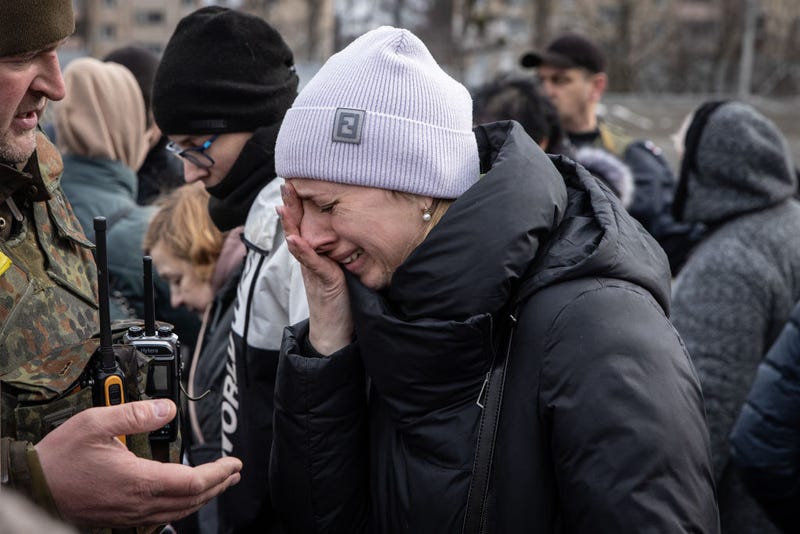
2:15 p.m. - Russian government blocks access to Facebook
Russia completely blocked access to Facebook across the country on Friday over “discrimination” against Russian media outlets that have long been criticized as a propaganda arm of the Kremlin.
In issuing the ban, Russian state communications regulator Roskomnadzor said: “Over the past few days the social media platform restricted access to the accounts of the television channel Zvezda, the RIA Novosti news agency, Sputnik, Russia Today, Lenta.ru, and Gazeta.ru news outlets.”
Roskomnadzor claimed in a statement that there were 26 cases of “discrimination against Russian media and information resources” by Facebook. It said the restrictions introduced by Facebook owner's Meta violate Russian law.
Nick Clegg, the president of global affairs for Meta, confirmed the ban in a tweet.
“Soon, millions of people will find themselves cut off from reliable information, deprived of their everyday ways of connecting with family and friends and silenced from speaking out,” Clegg said. “We will continue to do everything we can to restore our services so they remain available to people to safely and securely express themselves and organize for action.”
The move against Facebook follows the blocks imposed Friday on the BBC, the U.S. government-funded Voice of America and Radio Free Europe/Radio Liberty, German broadcaster Deutsche Welle and Latvia-based website Meduza as the government seeks to uproot independent sources of information about the invasion of Ukraine.
Meanwhile, Russia's parliament unanimously approved a draft law Friday that makes it a crime to intentionally spread what is deemed to be fake news. Russians could get up to 15 years in prison for disseminating information that goes against the official government line on the war.

2 p.m. - UN Security Council holds emergency meeting over nuclear scare
The head of the U.N. nuclear agency says a “projectile” hit a building adjacent to a block of six reactors at Ukraine’s largest nuclear power plant, sparking a fire that didn’t affect its operation, although he stressed there is nothing normal when military forces are in charge of the site.
International Atomic Energy Agency Director-General Rafael Mariano Grossi told an emergency meeting of the U.N. Security Council that the IAEA was informed by Russia a few days ago that its military forces were moving to take control of the Zaporizhzhia plant in the southeastern city of Enerhodar, similar to troops' seizure last week of Chernobyl, the site of the world’s worst nuclear disaster.
Grossi said the advance of Russian troops toward the perimeter of the nuclear power plant “was met with opposition and some group of civilians attacking the access to the plant.” In the early hours Friday, he said, the IAEA “got information that a projectile had impact (sic) a building adjacent to the block of reactors, six of them.” He did not say who fired the projectile.
1:30 p.m. - Russian diplomat says no occupation of Ukraine planned
A top Russian diplomat insisted Friday that his country will not occupy Ukraine.
“The goal is very clear: Denazification and demilitarization,” Gennady Gatilov, Russia’s ambassador in Geneva, said of the invasion — which he called a “special military operation.”
“We are not going to stay in Ukraine militarily. We are not going to occupy this country,” he told the U.N. Geneva press association ACANU. “I don’t now all the details of the military plan, but the political goal is as I described it.”
He said the definition of “demilitarization” was being discussed in diplomatic talks between Ukrainian and Russian envoys.
“We want to secure — or to have guarantees — that the threat is not coming from Ukraine against the Russian Federation.”
Russian President Vladimir Putin has sought to legitimize Russia’s moves in Ukraine by claiming a desire to “denazify" Ukraine, a country with a Jewish president who lost relatives in the Holocaust and who heads a Western-backed, democratically elected government.
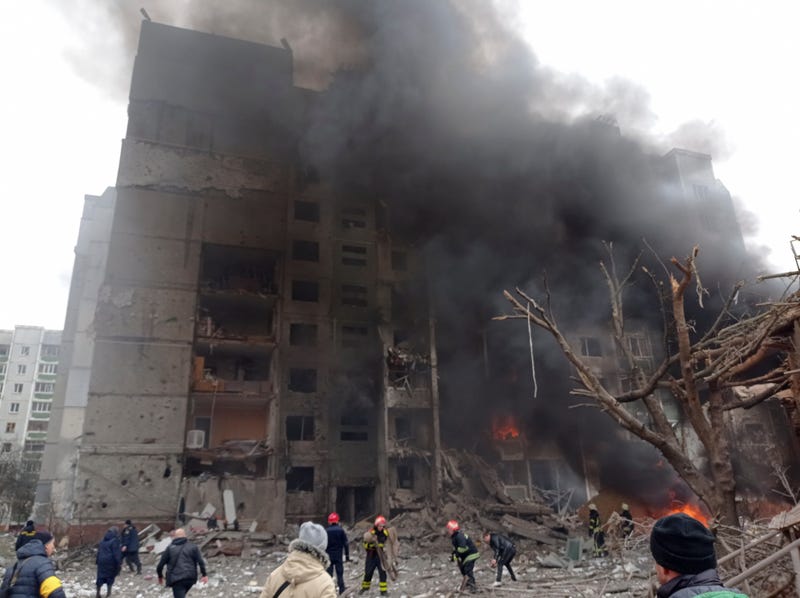
11:45 a.m. - Putin says Ukraine must meet Moscow’s demands
President Vladimir Putin says Russia is ready for talks with Ukraine but insisted that it must meet Moscow’s demands.
Putin told German Chancellor Olaf Scholz that Ukraine must agree to demilitarize, accept Moscow’s sovereignty over Crimea and surrender territory to Russia-backed rebels in the east, the Kremlin said in its readout of Friday’s call.
Russia annexed Ukraine’s Crimean Peninsula in 2014 following the ouster of the country’s former Moscow-friendly leaders and cast its support behind the rebels in eastern Ukraine.
Putin recognized the separatist “people’s republics” as independent states just before he launched an invasion of Ukraine on Feb. 24, citing their plea for military assistance.
Russian and Ukrainian negotiators on Thursday held the second of two rounds of talks, reaching a tentative agreement on setting up safe corridors to allow civilians to leave besieged Ukrainian cities and the delivery of humanitarian supplies. They also agreed to keep talking on ways to negotiate a settlement, but Putin’s tough demands make prospects for a compromise look dim.
Ukrainian negotiators said the parties may conduct another round of talks over the weekend.
11:00 a.m. - 1.2 million people have fled Ukraine, at least 331 civilians dead: UN
The U.N. refugee agency reported Friday that more than 1.2 million people have left Ukraine since the fighting began.
More than 165,000 people left the country on Thursday — down slightly from Wednesday’s count and well under the nearly 200,000 on Tuesday, which amounted to the peak one-day outflow of people from Ukraine since the conflict began, according to the United Nations High Commissioner for Refugees.
Its data portal on Ukraine showed that the majority — about 650,000 — had gone to neighboring Poland, and roughly 145,000 had fled to Hungary. Another 103,000 were in Moldova and more than 90,000 in Slovakia.
The U.N. human rights office, in its latest count of casualties released Friday afternoon, said it had confirmed 331 people killed and 675 people injured since the beginning of the Russian invasion. The rights office only reports casualties it has confirmed. It believes the real figures are much higher.
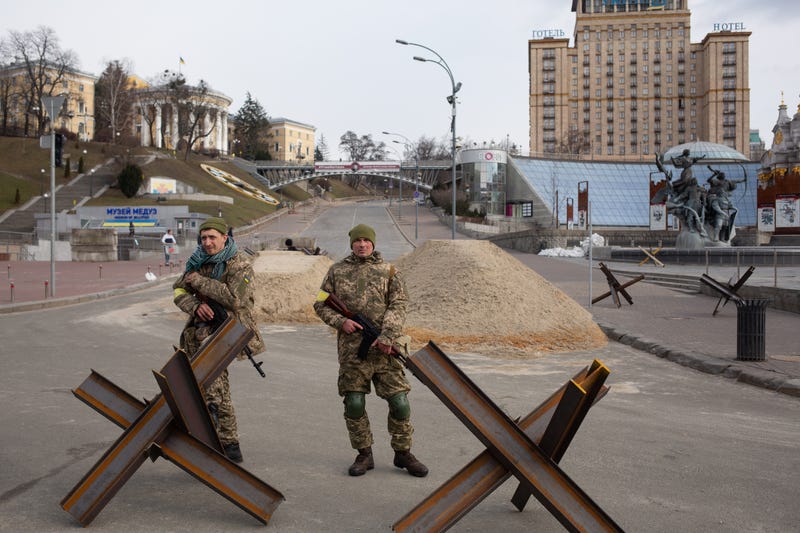
10 a.m. - UN Security Council to meet on nuclear plant attacks
The U.N. Security Council has scheduled an emergency open meeting on the attack on Ukraine’s largest nuclear power plant.
The meeting, to be held at 11:30 a.m. ET Friday, was requested by the United States, United Kingdom, France, Ireland, Norway and Albania.
Council diplomats said the International Atomic Energy Agency will brief council members.
Russia’s shelling of Europe’s biggest nuclear plant in Ukraine received widespread international condemnation on Friday. The shelling at the Zaporizhzhia plant in Enerhodar had touched off a fire that was extinguished. Russian forces have taken control of the site.
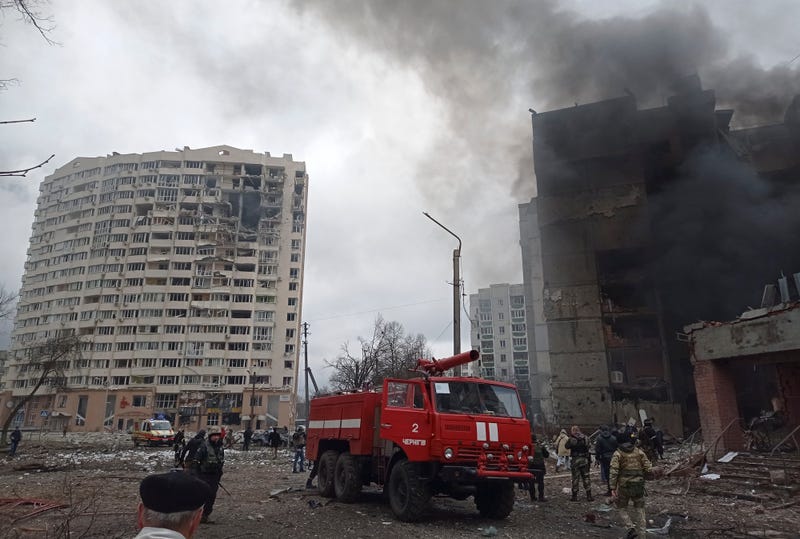
9:00 a.m. - NATO says no to no-fly zone over Ukraine
NATO Secretary-General Jens Stoltenberg says the military organization will not police a no-fly zone over Ukraine and is warning that such a move could end in a wide-spread war in Europe.
Speaking Friday after chairing a meeting of NATO foreign ministers, Stoltenberg said “we are not going to move into Ukraine, neither on the ground, nor in the Ukrainian airspace.”
Russian President Vladimir Putin’s forces have ramped up their attacks in Ukraine, launching hundreds of missiles and artillery strikes on cities and making significant gains in the south.
Ukrainian President Volodymyr Zelenskyy has appealed to the West to enforce a no-fly zone over his country, most recently after a fire overnight at one of Ukraine’s nuclear plants, the largest in Europe.
“The only way to implement a no-fly zone is to send NATO fighter planes into Ukrainian airspace, and then impose that no-fly zone by shooting down Russian planes,” Stoltenberg said. “We understand the desperation, but we also believe that if we did that, we would end up with something that could end in a full-fledged war in Europe.”
“We have a responsibility as NATO allies to prevent this war from escalating beyond Ukraine,” he said.
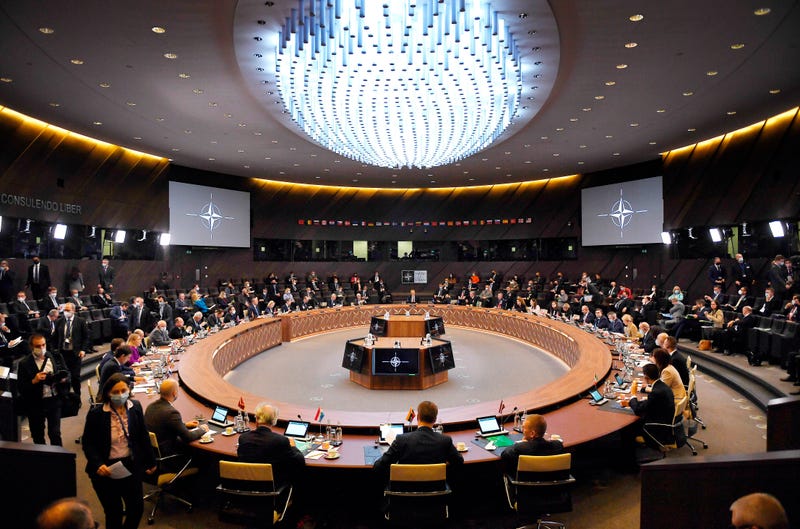
7 a.m. - Fire at Europe’s largest nuclear power plant out after fighting
Ukrainian authorities said Friday that a fire at Europe’s biggest nuclear plant ignited by Russian shelling has been extinguished after fears of a nuclear disaster.
The head of the United Nations’ atomic agency said that a Russian “projectile” hit a training center at the Zaporizhzhia plant. Ukrainian officials have said Russian troops took control of the overall site, but the plant’s staff are continuing to ensure its operations. International Atomic Energy Agency Director-General Rafael Mariano Grossi sad that Russian forces were at the plant, but the Ukrainians were in control.
Ukraine’s state nuclear plant operator Enerhoatom said that three Ukrainian soldiers were killed and two wounded in the attack. Grossi said two people were injured in the blaze that broke out.
Ukraine’s state nuclear regulator earlier said that no changes in radiation levels have been recorded so far after the plant came under attack. Grossi later said no radioactive material was released.
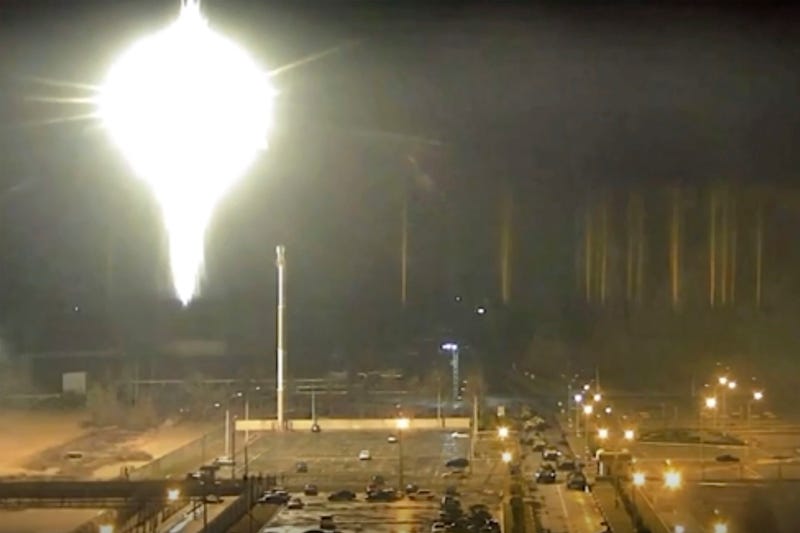
Initial reports conflicted over whether one or two fires broke out at the plant in the city of Enerhodar. Nuclear plant spokesman Andriy Tuz told Ukrainian television overnight that shells fell directly on the facility, and set fire to reactor No. 1, which is under renovation and not operating, and to an administrative training building.
On Friday morning, officials only referenced a blaze at the training building when they said that all fires at the plant were out — which Grossi also confirmed. The regional military administration reported unspecified damage to the compartment of reactor No. 1, but said it does not affect the safety of the power unit.
The nuclear regulator said staff are studying the site to check for other damage.
Grossi confirmed Friday that the building hit was a training center and “not part of the reactor.” He said he did not know what hit the plant but called a “projectile” from Russian forces.
He said that only one reactor at the plant is operating, at about 60% capacity.
The attack caused worldwide concern — and evoked memories of the world's worst nuclear disaster at Ukraine's Chernobyl. It was the second time since the invasion began just over a week ago that concerns about a nuclear accident or a release of radiation materialized, following a battle at the Chernobyl site last week.
In fact, Ukraine’s state nuclear regulator noted in a statement on Facebook the importance of maintaining the ability to cool nuclear fuel, saying the loss of such ability could lead to an accident even worse than the 1986 Chernobyl disaster or the 2011 Fukushima meltdowns in Japan.
The shelling of the plant came as the Russian military advanced on a strategic city on the Dnieper River near where the facility is located, and gained ground in their bid to cut the country off from the sea. That move would deal a severe blow to Ukraine's economy and could worsen an already dire humanitarian situation.
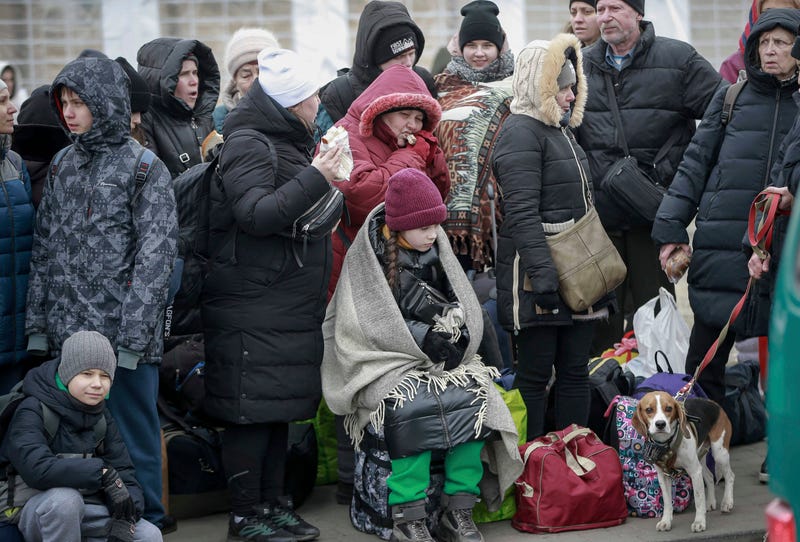
6:45 a.m. - Zelenskyy wants no-fly zone after nuclear plant scare
Ukrainian President Volodymyr Zelenskyy wants a no-fly zone to be imposed over his country in the wake of Russian shelling of Europe’s largest nuclear plant.
The attack on the Zaporizhzhia plant did not produce elevated radiation levels, but Zelenskyy on Friday evoked the 1986 Chernobyl nuclear plant explosion and fire to raise alarm about further attacks.
In his address, Zelenskyy said, “Europe must wake up.”
“If there is an explosion, it is the end of Europe,” he said. “Only urgent Europe actions can stop Russian troops.”
The plant “could be like six Chernobyls. The Russian tanks knew what they were shelling ... This is terror on an unprecedented level,” he said.
Any attempt by European air forces to impose a no-fly zone would likely severely escalate the conflict.
Zelenskyy also called on Russian civilians to express outrage about the plant attack.
“Radiation does not know where the Russian border is,” he said.
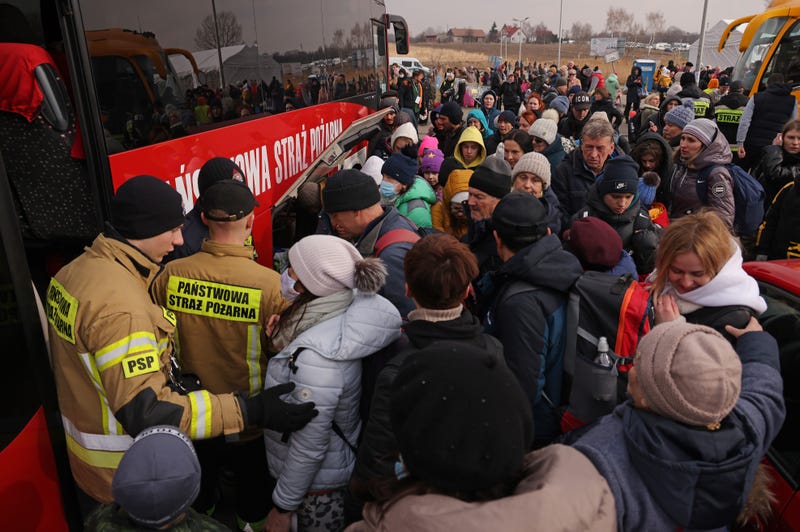
6:30 a.m. - UN Human Rights Council votes to monitor human rights in Ukraine
The U.N.’s top human rights body has voted overwhelmingly to appoint a three-person panel of experts to monitor human rights in Ukraine, where Russian forces are invading.
The Human Rights Council voted 32-2, with 13 abstentions, to pass a resolution that was presented by many Western countries and others who have spoken out against Moscow’s attack on its neighbor.
Only Russia and Eritrea opposed the resolution, with China abstaining.
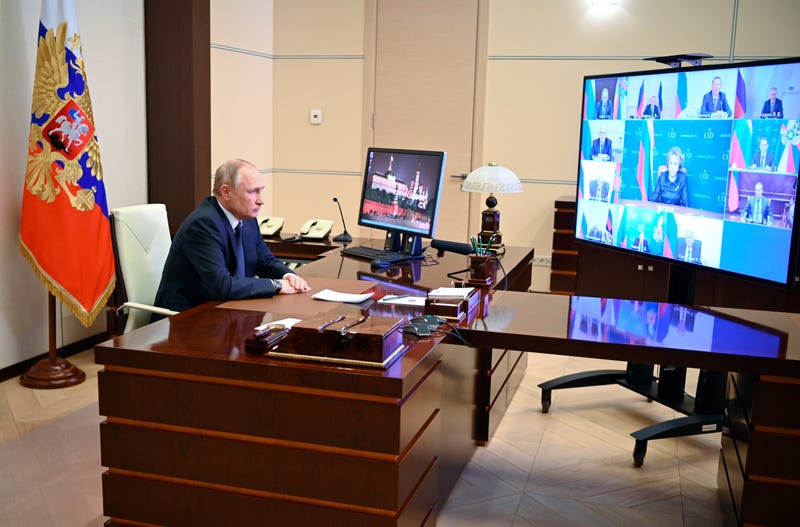
6:15 a.m. - Russia threatens 15-year jail sentences for “fake news” about Ukraine war
The Russian parliament has passed a bill introducing sentences of up to 15 years in prison for intentionally spreading “fake” information about military action.
Russian state news agencies reported Friday the passing of the bill in the third and final reading.
The development came amid a crackdown by Russian authorities on independent media and criticism of last week's invasion of Ukraine.
The bill now heads to the upper house of parliament, whose approval is expected to be a formality, before President Vladimir Putin can sign it into law.
Duma Speaker Vyacheslav Volodin says it may enter into force as early as Saturday.
Spreading what Russian authorities deem to be false information is punishable by up to three years in prison, or 15 years if it is deemed to have “severe consequences.” The bill also bans calling for sanctions to be implemented against Russia.
Less than two hours after the bill was passed, news website Znak said it was shutting down, citing “the large number of restrictions which have appeared recently affecting the work of media in Russia.”
Russia’s top independent radio station Ekho Moskvy was closed Thursday and independent TV station Dozdh ceased operations after receiving a threat of closure from the authorities.
The Associated Press contributed to this report.
